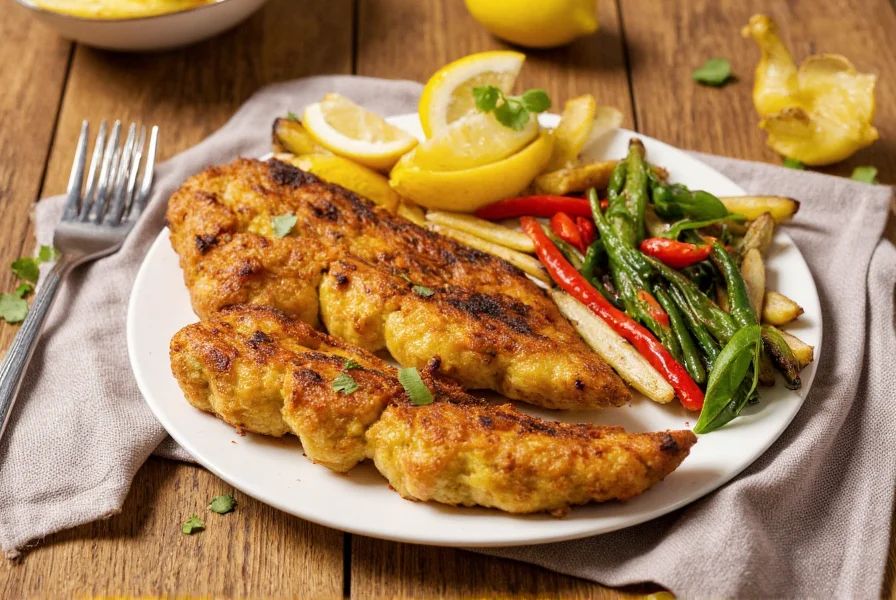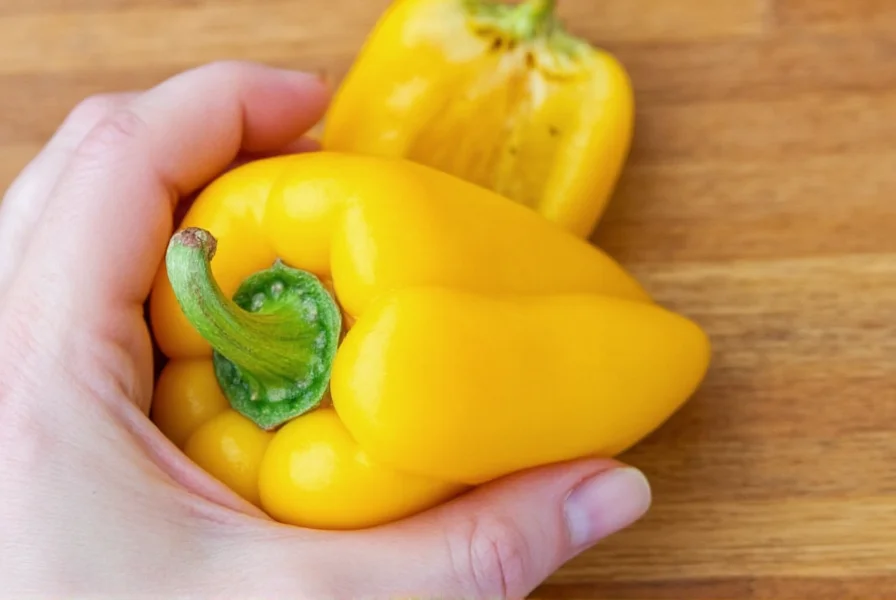When searching for lemon pepper steppers, home cooks typically want a reliable recipe that delivers consistent results with minimal fuss. This guide provides everything you need to create perfectly seasoned, crispy-on-the-outside, juicy-on-the-inside chicken steppers that will become a regular in your meal rotation.
What Makes Lemon Pepper Steppers Special
Lemon pepper steppers stand out from other chicken preparations due to their distinctive flavor balance. The citrus element cuts through the richness of the chicken while the pepper provides just enough heat without overwhelming the palate. Unlike many seasoned chicken recipes that rely heavily on salt, lemon pepper seasoning creates complexity through citrus oils and freshly cracked peppercorns.
Professional chefs often prefer making their own lemon pepper blend rather than using store-bought versions, which frequently contain excessive salt and fillers. The best homemade lemon pepper seasoning for chicken steppers includes fresh lemon zest, high-quality black peppercorns, garlic powder, and just a touch of onion powder.
| Essential Lemon Pepper Seasoning Components | Why It Matters | Recommended Proportion |
|---|---|---|
| Fresh lemon zest | Provides authentic citrus flavor without bitterness | 2 tablespoons per pound of chicken |
| Freshly cracked black pepper | Delivers complex heat and aroma (pre-ground loses potency) | 1.5 tablespoons per pound of chicken |
| Garlic powder | Enhances savory notes without burning | 1 teaspoon per pound of chicken |
| Onion powder | Adds depth to the flavor profile | 1/2 teaspoon per pound of chicken |
| Salt (optional) | Use sparingly if at all - many prefer salt-free versions | To taste, if used |
Step-by-Step Preparation Guide
Creating perfectly crispy lemon pepper chicken steppers requires attention to both seasoning application and cooking technique. Follow these professional kitchen-tested steps for restaurant-quality results at home:
- Prep the chicken: Pat 2 pounds of chicken drumettes or small chicken pieces completely dry with paper towels. Moisture is the enemy of crispiness.
- Make fresh seasoning: Combine lemon zest, freshly cracked pepper, garlic powder, and onion powder in a small bowl. Avoid pre-made blends with excessive salt.
- Season properly: Toss chicken in 1 tablespoon olive oil first, then generously coat with seasoning mixture. The oil helps the seasoning adhere and promotes browning.
- Rest before cooking: Let seasoned chicken sit uncovered in the refrigerator for 30-60 minutes. This allows flavors to penetrate and further dries the surface.
- Cook at proper temperature: Bake at 425°F (220°C) for 35-40 minutes or air fry at 400°F (200°C) for 20-25 minutes, flipping halfway through.

Achieving Maximum Crispiness: Pro Tips
Many home cooks struggle with getting their lemon pepper steppers recipe perfectly crispy. These professional kitchen techniques make all the difference:
- Baking powder trick: For extra-crispy results, add 1 teaspoon baking powder per pound of chicken to your dry seasoning mix. This creates a light, crackly crust without altering flavor.
- Wire rack method: Place chicken on a wire rack set over a baking sheet. This allows hot air to circulate completely around each piece for even browning.
- Don't overcrowd: Leave at least 1 inch between pieces. Crowded chicken steams instead of crisps.
- Finish under broiler: For the last 2-3 minutes, switch to broil to intensify browning without overcooking.
Variations for Different Dietary Preferences
Whether you're cooking for keto followers, gluten-free eaters, or those watching their calories, these lemon pepper steppers variations maintain flavor while accommodating dietary needs:
- Keto version: Skip any breadcrumb coatings and focus on maximizing crispiness through proper drying and high-heat cooking.
- Air fryer method: Cook at 400°F for 20-25 minutes (depending on size), shaking basket halfway through for air fryer lemon pepper steppers with minimal oil.
- Grill option: For smoky flavor, grill over medium heat (375°F), turning frequently until internal temperature reaches 165°F.
- Low-sodium alternative: Omit added salt completely and boost flavor with extra lemon zest and a pinch of dried thyme.
Common Mistakes to Avoid
Even experienced cooks make these errors when preparing lemon pepper chicken steppers. Avoid these pitfalls for perfect results every time:
- Using bottled lemon juice instead of zest: Bottled juice lacks the essential oils that provide authentic lemon flavor.
- Overcrowding the pan: This creates steam that prevents proper crisping.
- Not drying the chicken thoroughly: Surface moisture prevents seasoning adhesion and inhibits browning.
- Using pre-ground pepper: Freshly cracked pepper has significantly more flavor and aroma.
- Adding too much salt: Most commercial lemon pepper blends are salt-heavy; make your own for better control.
Serving Suggestions and Pairings
Lemon pepper steppers pair beautifully with a variety of sides that complement their bright, citrusy flavor profile. Consider these best side dishes for lemon pepper chicken combinations:
- Creamy garlic mashed potatoes (the richness balances the citrus)
- Simple arugula salad with lemon vinaigrette (echoes the main flavor profile)
- Roasted asparagus with parmesan (adds earthy notes)
- Cilantro-lime rice (for a fresh, complementary flavor)
- Corn on the cob with herb butter (adds sweetness that pairs well with citrus)

Storage and Reheating Instructions
While lemon pepper steppers are best enjoyed fresh, proper storage and reheating can maintain quality for leftovers:
- Refrigeration: Store in an airtight container for up to 3 days
- Freezing: Freeze on a baking sheet first, then transfer to freezer bags for up to 2 months
- Reheating for best results: Use oven or air fryer at 375°F until internal temperature reaches 165°F (about 10-15 minutes)
- Avoid microwaving: This makes the coating soggy and diminishes texture
Frequently Asked Questions
What cut of chicken works best for lemon pepper steppers?
Chicken drumettes (the smaller portion of the wing) work best as they're the perfect bite-sized "stepper" shape. You can also use small chicken thighs or cut larger pieces into 1.5-inch cubes for consistent cooking.
Can I make lemon pepper steppers without an oven?
Yes, you can prepare lemon pepper steppers on the stovetop using a cast-iron skillet with shallow oil (about 1/4 inch deep) over medium heat. Cook for 5-6 minutes per side until golden and internal temperature reaches 165°F. An air fryer also works exceptionally well for this recipe.
Why aren't my lemon pepper steppers crispy?
The most common reasons for non-crispy lemon pepper steppers are: insufficient drying of the chicken surface, overcrowded cooking surface, temperature that's too low, or using bottled lemon juice instead of zest. Ensure chicken is thoroughly patted dry, cook at proper high heat (400-425°F), and use fresh lemon zest for best results.
How can I make my lemon pepper seasoning less salty?
To create a low-sodium lemon pepper seasoning, simply omit added salt and focus on fresh lemon zest with freshly cracked black pepper. Many commercial blends contain up to 50% salt by volume. Making your own blend with 2 parts lemon zest to 1 part freshly cracked pepper, plus small amounts of garlic and onion powder, creates maximum flavor without excess sodium.











 浙公网安备
33010002000092号
浙公网安备
33010002000092号 浙B2-20120091-4
浙B2-20120091-4